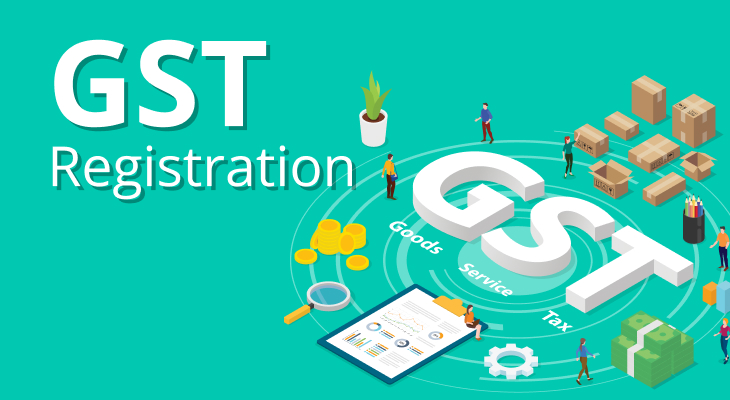How to Locate the Best GST Registration Services in Singapore Promptly
How to Locate the Best GST Registration Services in Singapore Promptly
Blog Article
Throughout: The Ultimate Roadmap to GST Enrollment for Organizations Looking For Financial Security
Navigating the intricacies of Item and Solutions Tax (GST) enrollment is a vital action for companies pursuing monetary security. From understanding the essential concepts of GST to following post-registration standards, the process can seem intimidating in the beginning look. However, breaking down the roadmap into workable actions can improve the registration journey for services looking to enhance their monetary standing. Let's discover the vital parts that compose this best roadmap and uncover how each stage adds to laying a solid foundation for monetary success.
Recognizing GST Fundamentals
Diving into the essential principles of Item and Services Tax (GST) is vital for getting a thorough understanding of its implications on companies and the economy. Input Tax Obligation Debt (ITC) is a considerable function of GST, enabling companies to assert credit history for tax obligations paid on inputs, reducing the overall tax concern. Recognizing the essentials of GST is important for services to abide with tax obligation laws, manage their finances efficiently, and contribute to the nation's economic growth by participating in a transparent tax system.
Qualification Criteria for Registration
As of the present policies, the threshold restriction for GST registration is a yearly aggregate turnover of 40 lakhs for organizations operating within a state, other than for unique classification states where the limitation is 20 lakhs. Additionally, particular businesses are needed to register for GST irrespective of their turn over, such as interstate suppliers, laid-back taxable individuals, and businesses responsible to pay tax obligation under the reverse charge system. It is essential for organizations to completely analyze their turn over and deal types to establish their GST enrollment obligations properly.
Documents Required for Enrollment
Having fulfilled the qualification criteria for GST registration, organizations should currently guarantee they have the requisite documents in area to wage the enrollment procedure successfully. The documents needed for GST enrollment typically include proof of business constitution, such as partnership deed, registration certificate, or unification certificate for different types of services. In addition, businesses need to offer files establishing the primary workplace, such as a rental arrangement or electricity costs. Frying pan card of the business, along with the identity and address evidence of promoters/partners/directors, are crucial for verification purposes. Checking account statements, along with terminated cheques or a duplicate of the bank passbook, are needed to verify the financial information provided during registration. Moreover, organizations have to have digital trademarks ready for the licensed signatory. Making certain all these documents are organized and readily offered will certainly speed up the GST registration procedure, allowing organizations to abide by tax laws effortlessly.
Step-by-Step Enrollment Process
Beginning the GST registration procedure involves a series of structured steps to guarantee a smooth and certified enrollment for businesses. The very first step is to go to the GST site and fill out the registration kind with precise details of the company entity. Following this, the applicant receives a Short-term Referral Number (TRN) which is made use of to resume the application procedure if it's not completed in one go.
Next, all needed documents as per the checklist offered by the GST portal demand to be submitted. These papers generally include proof of organization address, enrollment and identity evidence useful site of marketers, monetary statements, and service entity's frying pan card.

Post-Registration Conformity Guidelines

Conclusion
In final thought, companies seeking financial security has to understand the essentials of GST, fulfill qualification requirements, collect necessary records, adhere to the step-by-step registration procedure, and comply with post-registration standards - Best GST registration services in Singapore. By adhering to these steps, organizations can make certain conformity with tax laws and keep financial stability in the future
In addition, particular companies are required to sign up for GST regardless of their turn over, such as interstate distributors, laid-back taxed persons, and organizations responsible to pay tax under the reverse cost system.Having actually satisfied the eligibility standards for GST registration, organizations need to currently ensure they have the requisite papers in place to continue with the enrollment procedure effectively. The records required for GST enrollment normally consist of evidence of business constitution, such as partnership deed, enrollment certification, or consolidation certification for different types of businesses. Furthermore, businesses need to give files developing the primary place of service, such as a rental agreement or power bill.Starting the GST enrollment procedure involves a collection of organized actions to make sure a certified and seamless enrollment for their website businesses.
Report this page